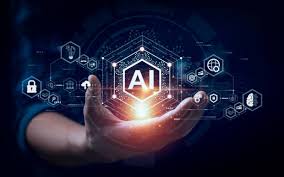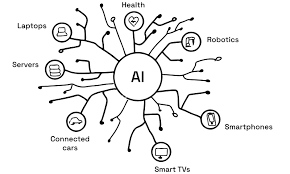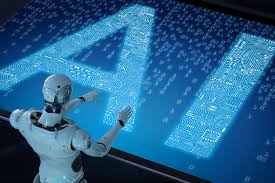
Artificial Intelligence: Transforming the Future
Artificial Intelligence (AI) is one of the most transformative technologies of the 21st century. It is rapidly changing the way we live, work, and interact with the world. From voice assistants on smartphones to self-driving cars, AI has become an integral part of modern life. As we move forward into a digital age, understanding AI—its origins, impact, and future—is essential.
What is Artificial Intelligence?
Artificial Intelligence refers to the simulation of human intelligence by machines, especially computer systems. These systems are designed to perform tasks that typically require human intelligence such as learning, reasoning, problem-solving, understanding language, and perception.
AI can be classified into two broad types:
- Narrow AI: Also known as weak AI, it is designed to perform a narrow task (e.g., facial recognition, internet searches, or driving a car). Most of the AI we use today is narrow AI.
- General AI: Also known as strong AI or AGI (Artificial General Intelligence), it refers to a system with generalized human cognitive abilities. When presented with an unfamiliar task, a strong AI system can find a solution without human intervention. This form of AI is still theoretical.
A Brief History of AI
The concept of artificial intelligence dates back to ancient mythology, but the term “Artificial Intelligence” was first coined in 1956 at a conference at Dartmouth College. The early years of AI research were filled with optimism, but progress slowed due to limited computational power and high expectations, leading to periods known as “AI winters.”
Key milestones include:
- 1950s: Alan Turing proposed the “Turing Test” to determine if a machine can exhibit intelligent behavior.
- 1960s–70s: Early AI programs could solve algebra problems and play simple games.
- 1980s: Expert systems became popular, designed to mimic human decision-making.
- 1997: IBM’s Deep Blue defeated world chess champion Garry Kasparov.
- 2010s–present: Breakthroughs in machine learning, especially deep learning, have led to rapid advancements. In 2016, Google DeepMind’s AlphaGo defeated a top human Go player.
Applications of AI

AI is already integrated into various aspects of our lives, often in ways we don’t even notice:
- Healthcare: AI assists in diagnosing diseases, analyzing medical images, personalizing treatment plans, and even in robotic surgeries.
- Transportation: Self-driving cars use AI to process data from sensors and make real-time decisions. AI also optimizes logistics and traffic management.
- Finance: AI is used for fraud detection, algorithmic trading, credit risk assessment, and customer service through chatbots.
- Education: AI enables personalized learning experiences, grading automation, and intelligent tutoring systems.
- Retail: Recommendation systems on e-commerce websites, inventory management, and customer service are powered by AI.
- Entertainment: Streaming services like Netflix and Spotify use AI to suggest content based on user preferences.
- Smart Assistants: Virtual assistants like Siri, Alexa, and Google Assistant rely on AI to understand voice commands and provide relevant responses.
Benefits of AI
AI has the potential to bring tremendous benefits to society:
- Efficiency and Automation: AI can automate repetitive tasks, increasing productivity and reducing errors.
- 24/7 Availability: Unlike humans, AI systems do not need rest, making them ideal for customer support and monitoring tasks.
- Data Analysis: AI can analyze vast amounts of data quickly, uncovering patterns and insights that would take humans much longer to detect.
- Personalization: From healthcare to marketing, AI can tailor services to individual needs.
- Safety: In dangerous industries like mining, AI-powered robots can perform hazardous tasks, reducing risk to human workers.
Challenges and Concerns
Despite its advantages, AI presents several challenges and ethical concerns:
- Job Displacement: Automation of tasks could lead to significant job losses, especially in industries like manufacturing, transportation, and customer service.
- Bias and Discrimination: AI systems can inherit biases present in their training data, leading to unfair outcomes in areas like hiring or policing.
- Privacy Issues: AI’s ability to analyze and predict user behavior raises serious concerns about data privacy and surveillance.
- Security Risks: AI can be used maliciously, such as in the creation of deepfakes or autonomous weapons.
- Lack of Transparency: Many AI models, especially deep learning systems, are black boxes. It’s often difficult to understand how they make decisions.
- Dependence on Technology: Over-reliance on AI may reduce human skills and critical thinking over time.
The Future of AI
The future of AI is both exciting and uncertain. Researchers are working toward creating more general and flexible AI systems that can perform a broader range of tasks. Some trends and possibilities include:
- Human-AI Collaboration: Instead of replacing humans, AI is expected to work alongside them, augmenting their capabilities.
- Ethical AI: Developing transparent, fair, and accountable AI systems is becoming a key focus for governments and tech companies.
- Regulation and Governance: Countries are beginning to develop frameworks to regulate the development and use of AI to ensure it is used safely and responsibly.
- AI in Developing Countries: AI has the potential to solve problems in agriculture, healthcare, and education in low-resource settings.
- Superintelligence Debate: Some experts warn about the potential creation of AI that surpasses human intelligence, posing existential risks. Others believe such developments are far off.
Conclusion

Artificial Intelligence is reshaping every aspect of human life. It holds immense promise, from curing diseases to solving global problems like climate change and poverty. However, it also poses serious challenges that require thoughtful regulation, ethical consideration, and public awareness. The key lies in balancing innovation with responsibility.
As AI continues to evolve, one thing is certain: it will play a central role in shaping the future of humanity. How we choose to develop and apply this powerful technology will determine whether it becomes our greatest ally or one of our biggest risks.